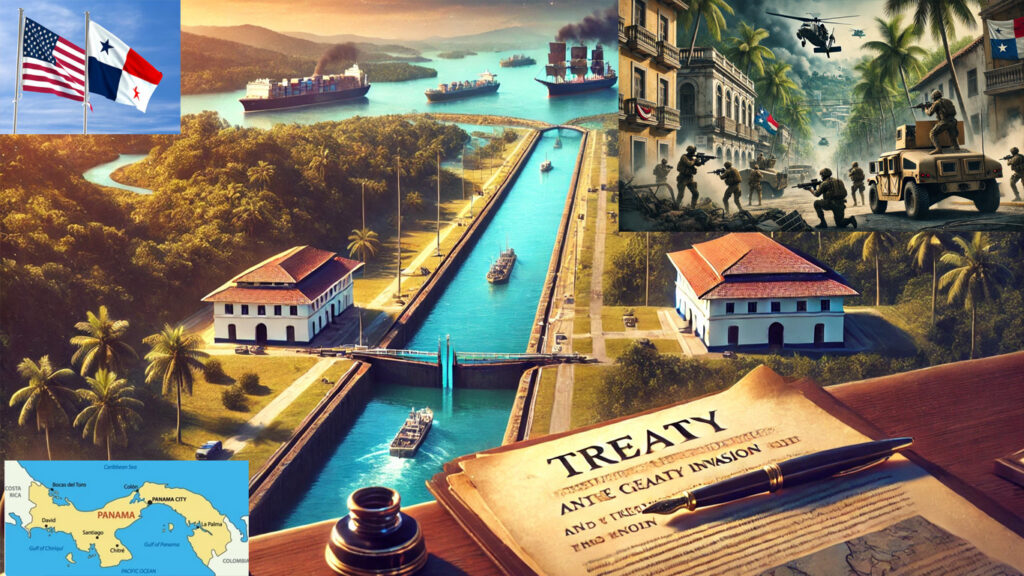Donald Trump is threatening to invade to re-steal the Panama Canal in defiance of the Torrijos-Carter Treaty. He would do well to learn the history and not have the US break yet another treaty.
Another Panama Invasion?
Watch Politics Done Right T.V. here.
Podcasts (Video — Audio)
Summary:
The video offers a detailed historical account of the establishment of the Panama Canal, the U.S. involvement in Panama’s independence, and the inequalities experienced by Panamanians under U.S. control of the Canal Zone. It highlights the apartheid-like conditions within the zone, Panamanian resistance, and the eventual signing of the Torrijos-Carter Treaty, which returned the canal to Panama. The speaker also critiques contemporary rhetoric, such as Donald Trump’s suggestion to “take back the canal,” as a regressive stance ignoring history and sovereignty.
- Panama’s Historical Struggles: Panama gained independence from Spain in 1821 and later joined Colombia before becoming a U.S.-engineered independent nation to facilitate canal construction.
- Construction Challenges: The French failed to build the canal due to Panama’s rugged terrain and diseases, paving the way for U.S. intervention.
- Apartheid-Like Conditions: The U.S.-controlled Canal Zone segregated Panamanians, providing them with inferior housing, schools, and resources compared to Americans.
- Panamanian Resistance: Protests and riots, including the Flag Riots 1964, drew attention to the injustices and eventually led to the Torrijos-Carter Treaty.
- Modern Implications: Climate change poses new challenges for the canal, while Trump’s rhetoric to reclaim it threatens to undermine Panama’s sovereignty and international treaties.
The history of the Panama Canal is a cautionary tale of imperialism, inequality, and resilience. For progressives, it underscores the need to respect sovereignty, honor treaties, and prioritize international cooperation over militaristic dominance. Leaders like Trump must recognize that global progress requires equitable partnerships, not a return to exploitative practices. The Panamanian struggle for justice and sovereignty should inspire efforts to build a fairer world order.


